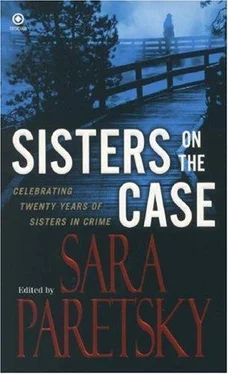‘‘Have you lost your senses, taking a stray like that into the house? And letting him use your convenience.’’
‘‘Convenience!’’ Mary mocked.
‘‘You could catch something from the likes of him.’’
‘‘I could, and wouldn’t that surprise you?’’ Mary gave her a bark of a laugh.
‘‘Not in the least,’’ Norah said, fairly sure she was being made fun of.
‘‘I’m thinking I’ll fix a cot for him in the back kitchen.’’
‘‘So he’s coming back, is he? And why not? The hospitality of the house. And never a word to me, Mary.’’
‘‘Amn’t I telling you now?’’
‘‘When you’ve already made up your mind. There was a piece in the paper last week if you ever read it, a man’s watch stolen right from the table where he was asleep in his bed.’’
‘‘My old clock wouldn’t bring much,’’ Mary said. Then she told her sister, ‘‘You can’t call him a stray, Norah. He’s Michael’s nephew, his own brother’s son.’’
Norah sucked in her breath, needing all of it. Michael, more than ten years dead, ought to have been out of their lives, but he never would be-a man she had never met, never wanted to meet, married to a sister she was sure she had saved from the streets after he died. Many times since she wished she hadn’t and near as many times said so to Mary when goaded by her. Out of this roiling memory, she cried, ‘‘Did you invite him to come? Did you know he was coming?’’
‘‘What a crooked mind you have,’’ Mary said. ‘‘I didn’t know who he was till he told me. He sang at my wedding. A wisp of a boy then, he sang like an angel. Even Michael cried. His name is Dennis- Dennis O’Hearn.’’ Mary lifted her chin saying it.
As though he was a child of her own, Norah thought with another surge of anger. She was as barren herself as Mary. More so, an old maid.
The two Lavery sisters had been brought over from Ireland, one after the other before either was twenty, by the childless couple from whom Norah inherited the farm, lock, stock, and barrel. It was not written into the bequest, but confided to the priest as well as to Norah, that it was hoped she would take care of her sister if ever she returned in need. Mary had run away within a year of her arrival. She was not greatly missed. Except by the farmer who had grown too fond of her.
Norah could see the change come over Mary. It was always like that with her after she had been mean. Mary touched her toe to the mound of potatoes the size of marbles. ‘‘Will you take a handful of these for your supper?’’
‘‘I will. They’re sweeter by far than the big ones.’’
‘‘Aye. Why shouldn’t they be, coming to you for nothing?’’ She knocked the soap from the dish by the pump and filled it. ‘‘Bring the dish back the next time you come.’’ When Norah was halfway along the path, Mary called, ‘‘Listen for the telephone in case I ring you later.’’
Mary was never without a drop of whiskey in the house. She kept a small flask of it under her pillow to ease the pain at night. Everyone knew but nobody told in the town where she got it. It would be a sad day for her when Prohibition ended, and the end was in sight. They’d be shipping the real thing in from Canada, and it wouldn’t be half as good as what she got from Donel Rossa.
Rossa belonged to the first generation American Irish who farmed the rich soil of southern Wisconsin. His principal crop was corn, which he sold to a variety of consumers, some, no doubt, to members of his family said to have connections with the Chicago underworld.
Something Mary kept hidden in her heart was that soon after Michael was killed she began to receive, like clockwork and wherever she was, a pint every month marked ‘‘holy water.’’ Since her coming back from Chicago, it was delivered by Donel himself, and if ever she mentioned paying him for it, he’d say, ‘‘Ah, Mary, Michael O’Hearn was a fine man. It comes to you with his pension.’’ God and Mary knew the pension could take a supplement, but whenever question of where it was coming from bothered her, a tweak of pain put her conscience if not her bones at ease.
Donel was older than the sisters, closer in years to the old couple who had brought them over. Mary hadn’t become close friends with him until she moved out of Norah’s house, saying she’d rather live in the barn. The barn was an empty shell by then. Norah had auctioned off livestock, equipment, everything but the barn doors. And since Donel had had a hand, along with Father Conway, in bringing Mary back to where she wasn’t wanted, he’d undertaken to help make the barn livable.
He was the first one Mary phoned to come round that night after supper. ‘‘I’ve someone here I want you to meet. Come and bring the missus.’’
‘‘And I’ll bring a smile,’’ he promised.
A smile: his word for a bottle. As though she hadn’t expected it.
Norah, as usual, put off going over for as long as she could stand not to go. She wanted them to wonder what was keeping her and at the same time suspected they wouldn’t miss her if she didn’t show up at all. They never tired of singing the old songs over and over, and she could hear the thump of Mary’s stick on the floor as she beat time. When there was a quiet minute she imagined them passing the bottle to all there except Margaret and Tom’s lump of a girl pretending to be asleep on the couch. Norah got her shawl from the hall stand, went out the front door and locked it behind her. You never could tell at night.
She moved with caution along the path, guided only by her memory of it in daylight. Rossa’s voice was the loudest. It always was. She didn’t like him. He treated Mary better than he did his wife, for one thing, but closer to the truth of it, Norah was sure he did not like her. She could never forget the look he had given her when she clapped her hands at news of Mary’s marriage. The smile on his face had seemed to say, So now it’s all yours, all yours . He’d been right, of course. And he was the one who came to tell her Mary’s husband was dead, so soon. She would swear it was his cold eye that kept pity from coming over her. Now as she neared the barn, she tried to listen for a new voice among the familiar. The Angel Gabriel couldn’t be heard over Rossa and the thump of Mary’s stick.
Dennis O’Hearn wasn’t bad-looking when you saw him up close, she decided, but she would never have taken him for an Irishman. There was a hangdog look to him, big sad eyes that reminded her of the dog Mary wanted to bring into the house when they lived together. Now he picked up on a tune Margaret hummed for him and put the words to it. Norah had not heard it before, a nursery song, nor had she heard a voice like his, deep and dark and soft as velvet. Her love for music was the truest thing in Norah’s life. It drew her to High Mass on Sundays, and prompted her to buy a piano as soon as she had money. It stood mute in her living room save for the few chords she had taught herself to play so that she might know there was music in it.
It was strange the way Dennis O’Hearn’s and her gaze met and locked as though their eyes had got accidentally tangled. He wiped his mouth with the back of his hand to hide a smile, she felt. And she sensed her color rising to the roots of her hair. She caught at the foot of the girl stretched on the couch. She’d had to push it aside to make room for herself. The young one pulled her foot away so fast Norah almost lost her balance. She flashed her a smile when she’d rather have pinched her. The upstart mimicked her smile back at her.
The room was stuffy and smelled of the men, sweat and tobacco smoke and the cow barn, and a whiff of Mary’s liniment. Mary called this one big room her parlor. Norah always thought it resembled a gypsy’s nest. To be sure, she’d never seen one. But, for example, instead of a door to the kitchen, the frame was hung with a curtain of beads Mary had bought off a peddler’s wagon. The beads rattled if a wind came up or when someone passed from room to room. Mary’s nook of a bedroom was to one side, chopped out of the kitchen. If Dennis O’Hearn roamed through the house at night, it occurred to Norah, Mary would hear him part the curtain. Would she call him in to the side of her bed and ask him to rub liniment into her knees? Surely not. But Mary was that way. She was as easy with men as she was with women.
Читать дальше












